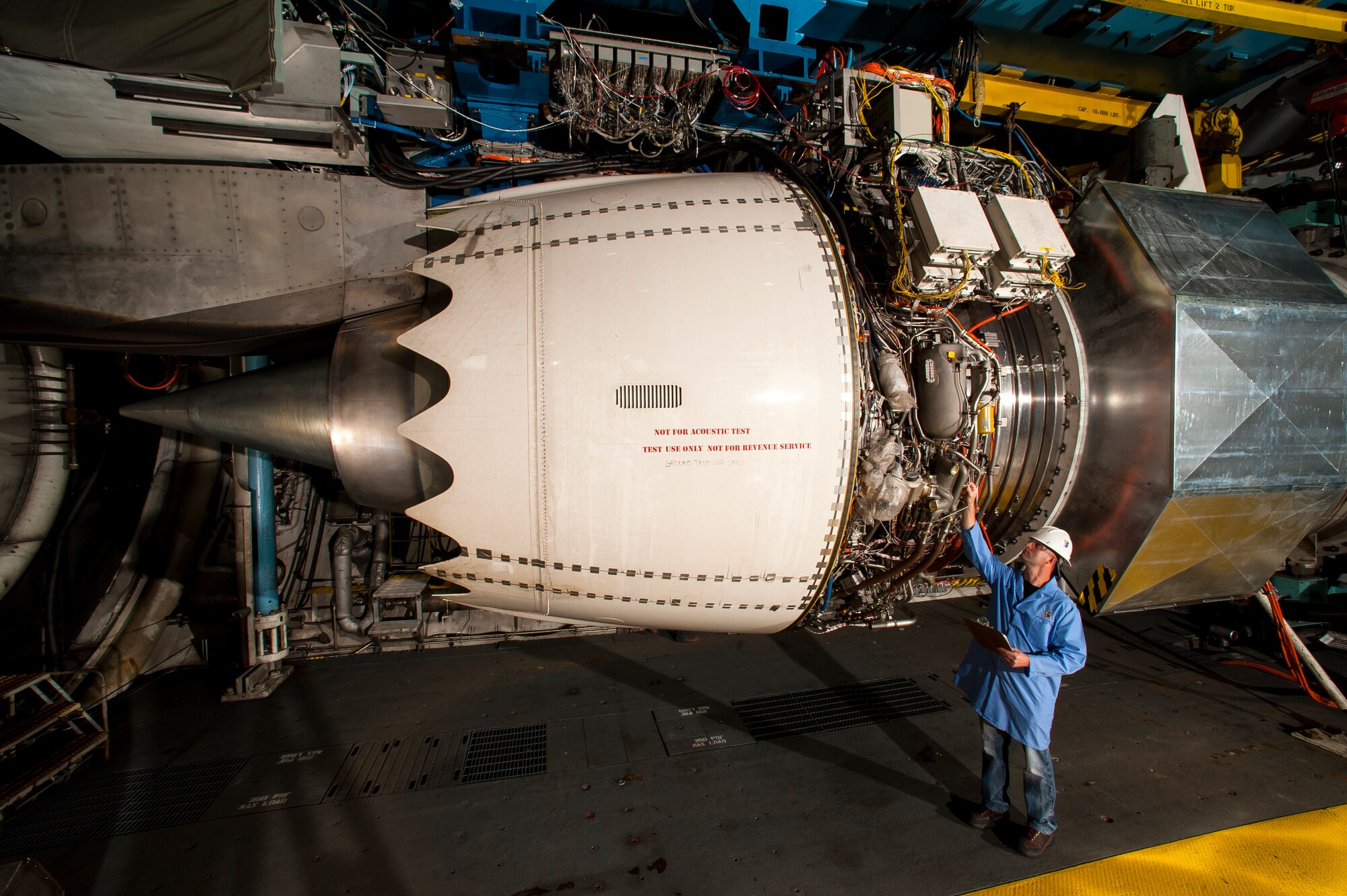EN 336 Engine Ceramic Matrix Composite Testing
The testing of engine ceramic matrix composites (CMCs) under the European Standard EN 336 is crucial for ensuring the reliability, durability, and performance of aerospace engines. The stringent requirements outlined in this standard are designed to evaluate the mechanical properties, thermal stability, and resistance to erosion and oxidation that these advanced materials must exhibit.
These composites play a vital role in modern propulsion systems by offering lightweight yet highly durable components which can withstand extreme temperatures and loads. The testing process involves several critical stages aimed at simulating real-world operating conditions. This includes high-temperature fatigue tests, creep testing, and oxidation resistance assessments to ensure the materials meet the stringent performance criteria set forth by EN 336.
Our comprehensive testing facility is equipped with state-of-the-art equipment capable of replicating these harsh environments accurately. We employ advanced techniques such as thermogravimetric analysis (TGA), differential scanning calorimetry (DSC), and X-ray diffraction (XRD) to characterize the material composition before performing mechanical tests like tensile, compression, and impact strength evaluations.
For thermal stability testing, we utilize furnace systems that can reach temperatures exceeding 1200°C while maintaining precise control over heating rates. These furnaces allow us to simulate the prolonged exposure to high temperatures that CMCs experience during engine operation. Additionally, we conduct cyclic fatigue tests at elevated temperatures to assess the material’s ability to withstand repeated stress cycles without failure.
The results from these rigorous tests are meticulously recorded and analyzed using sophisticated software tools provided by leading manufacturers such asInstron or MTS Systems Corporation. Our engineers then compile detailed reports outlining every aspect of the testing process, including any deviations from expected performance, which helps our clients make informed decisions about material selection and design optimization.
By adhering strictly to EN 336 guidelines throughout our entire testing procedure, we ensure that all findings are consistent with international best practices. This not only enhances confidence in the quality of our services but also facilitates smoother regulatory compliance for our clients operating within EU airspace regulations.
- Thermogravimetric analysis (TGA)
- Differential scanning calorimetry (DSC)
- X-ray diffraction (XRD) characterization
- Tensile, compression, and impact strength evaluations
- Cyclic fatigue tests at elevated temperatures
Applied Standards
The European Standard EN 336 provides specific requirements for the mechanical testing of ceramic matrix composites used in aircraft engine parts. Compliance with this standard ensures that the materials meet stringent performance criteria necessary for safe and efficient operation under extreme conditions.
This includes ensuring adequate strength, ductility, toughness, and fracture toughness values across various temperature ranges relevant to aerospace applications. By following EN 336, manufacturers can verify that their products will perform reliably throughout their lifecycle without compromising safety or regulatory compliance.
The standard covers multiple aspects of material testing including tensile, compression, and impact strength measurements; thermal shock resistance assessment; and long-term creep behavior evaluation. These tests are conducted using specialized equipment capable of simulating realistic engine operating environments characterized by high temperatures and stresses.
Additionally, EN 336 specifies protocols for evaluating the oxidation resistance of CMCs through exposure to controlled atmospheres containing oxygen or water vapor at elevated temperatures. This ensures that the materials retain their integrity even after extended periods exposed to aggressive environmental conditions.
In summary, compliance with EN 336 is essential for producing high-quality ceramic matrix composites suitable for use in today’s advanced propulsion systems. Our laboratory adheres rigorously to these standards ensuring accurate and reliable test results that meet the highest industry expectations.
Environmental and Sustainability Contributions
- Reduces fuel consumption by utilizing lighter, more efficient materials
- Promotes recycling through optimized design and manufacturing processes
- Minimizes waste generation during production due to precise material usage
- Sustains resource efficiency by selecting sustainable raw materials
Competitive Advantage and Market Impact
Our expertise in EN 336 ceramic matrix composite testing offers significant competitive advantages to our clients operating within the aerospace industry. By providing accurate, reliable test results that exceed regulatory requirements, we help ensure product quality while reducing development time.
These tests contribute directly to safer and more efficient propulsion systems by identifying potential weaknesses early in the design phase. This allows manufacturers to refine their designs iteratively until they achieve optimal performance without sacrificing safety or environmental impact.
The ability to demonstrate compliance with international standards like EN 336 also enhances a company’s reputation among customers seeking products that meet stringent quality benchmarks. It fosters long-term relationships based on trust and reliability, thereby increasing market share and brand loyalty.
Moreover, our services support continuous improvement efforts by offering insights into how materials can be optimized further while maintaining or improving their performance characteristics. This proactive approach ensures that clients remain at the forefront of technological innovation within the aerospace sector.





